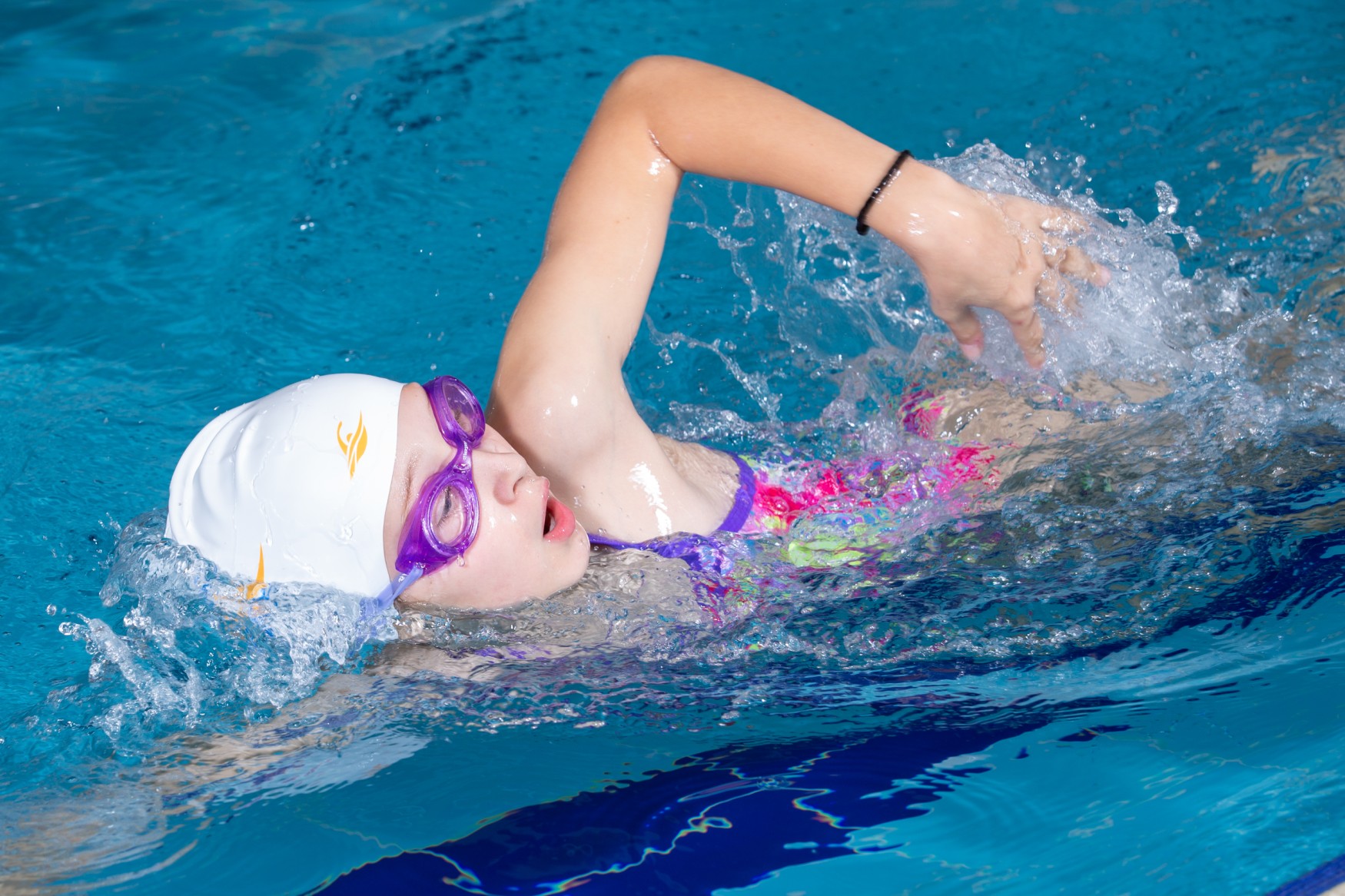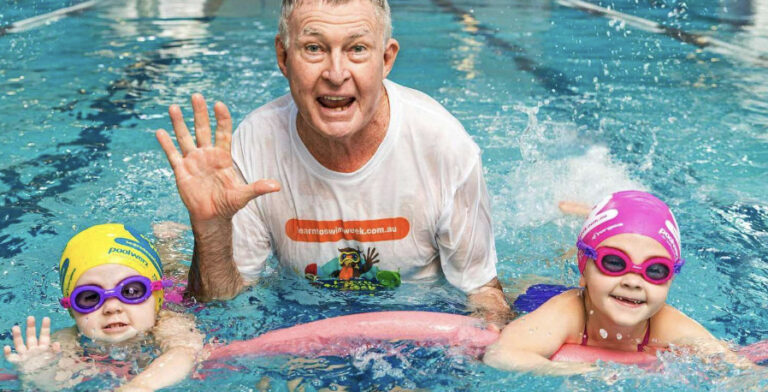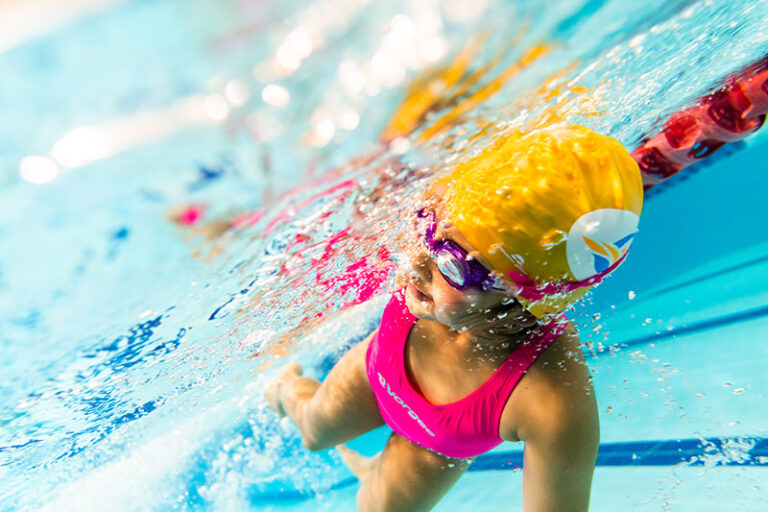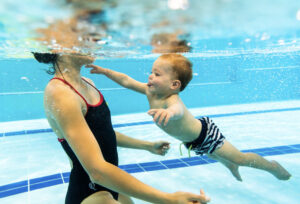
In Australia, swimming is one of the most important skills a child must learn. But what do you do when your child is scared of the water? Or simply hates swimming lessons?
Sometimes young children fear water, leaving parents frustrated and anxious. You can feel helpless wondering how you can help them overcome their anxieties. The good news is children almost always overcome their fear of swimming.
What can you do to help?
The first thing is to find the right swim school and that starts with the pool itself. These are some must haves:
- Warm water – cold water and children don’t mix.
- Safe ledges – places for small children to sit in the water where they feel safe and comfortable. Before and after they venture out for their time swimming with or to the teacher.
- Shallow depths – when young children begin to attempt to swim independently they need the security of knowing if they panic or swallow water, they can put their feet down and stand. This is so important for their confidence.
- The right teachers – children should never be forced into the water “sink or swim” went out with steam engines. Teachers need to patiently engage, distract and encourage nervous beginners.
As for other things you can do, there is a lot of helpful information for starting young children here. Below are some tips and tricks to help your little one overcome their fear of swimming:
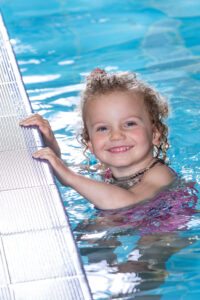
Swim School
Understanding the Fear:
Before diving into solutions, it’s crucial to understand the root of the fear. Common causes include:
- Negative Experience: A past negative experience, such as a near-drowning incident or a slip in the pool, can instill fear.
- Imagination and Anxiety: Kids often have vivid imaginations. Fears might stem from what they imagine lurks beneath the water’s surface.
- Fear of the Unknown: Some children fear swimming simply because it’s an unfamiliar activity.
Creating a Positive Association:
- Start Early:
- Introduce water activities at an early age. The younger a child becomes accustomed to the water, the more comfortable they are likely to be. Did you know kids who start swimming early gain a variety of developmental benefits. Pouring water over their heads in the bath is a good idea. Give them a cue so they know to keep their mouths closed.
- Familiarisation Sessions:
- Begin with shallow water or even in the bath! allow kids to gradually get used to the water. Let them play with toys in the shallow water to build positive associations.
- Positive Reinforcement:
- Praise every small achievement. Positive reinforcement boosts confidence and helps shift the focus from fear to accomplishment.
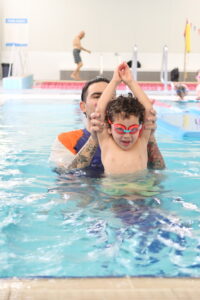
Gradual Exposure:
- Progressive Steps:
- Break down swimming into manageable steps. Begin with activities like blowing bubbles, floating on the back, and gradually progress to more advanced skills.
- Familiar Faces:
- Encourage kids to swim with familiar faces, such as friends, family members and a regular swimming instructor! Having a support system can alleviate anxiety.
- Fun and Games:
- Incorporate games into swimming sessions. Games make the experience enjoyable and distract from fear.
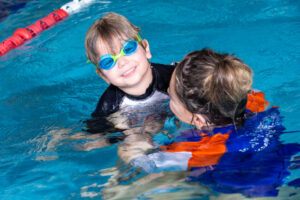
Professional Guidance:
- Qualified Instructors:
- Enroll kids in swim lessons with qualified instructors. Professionals are trained to address fears, build trust, and teach essential swimming skills.
- Group Dynamics:
- Group lessons provide a supportive environment where kids can see their peers overcoming fears and gaining new skills, fostering a sense of comradery.
Patience and Understanding:
- Emotional Support:
- Be patient and understanding. Acknowledge their fears and listen to their concerns without dismissing them.
- Lead by Example:
- Demonstrate a positive attitude towards swimming. Kids often mirror the behavior of adults, so showcase your enjoyment of water activities.
Celebrate Progress:
- Small Victories:
- Celebrate every small achievement, whether it’s putting their face in the water or floating independently. Acknowledging progress reinforces positive behavior.
- Create Positive Memories:
- Plan enjoyable water-related activities outside of lessons. Trips to the beach, water parks, or family pool days can create positive associations with water.
Helping kids overcome their fear of swimming requires a combination of patience, positive reinforcement, and gradual exposure. By understanding the root of the fear and employing these strategies, parents and caregivers can guide their children towards becoming confident and capable swimmers. Remember, the goal is not only to teach a valuable life skill but also to foster a lifelong love for the water. With the right support, every child can dive into the world of swimming without fear.

